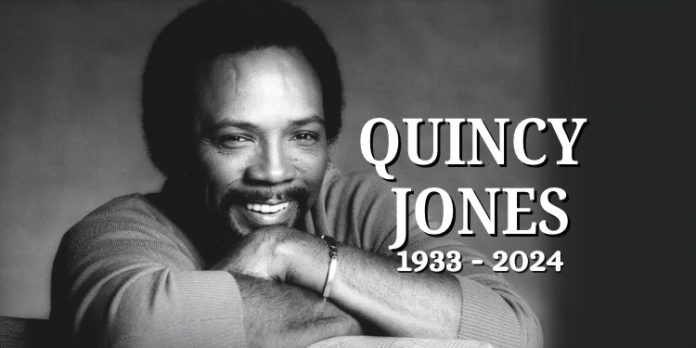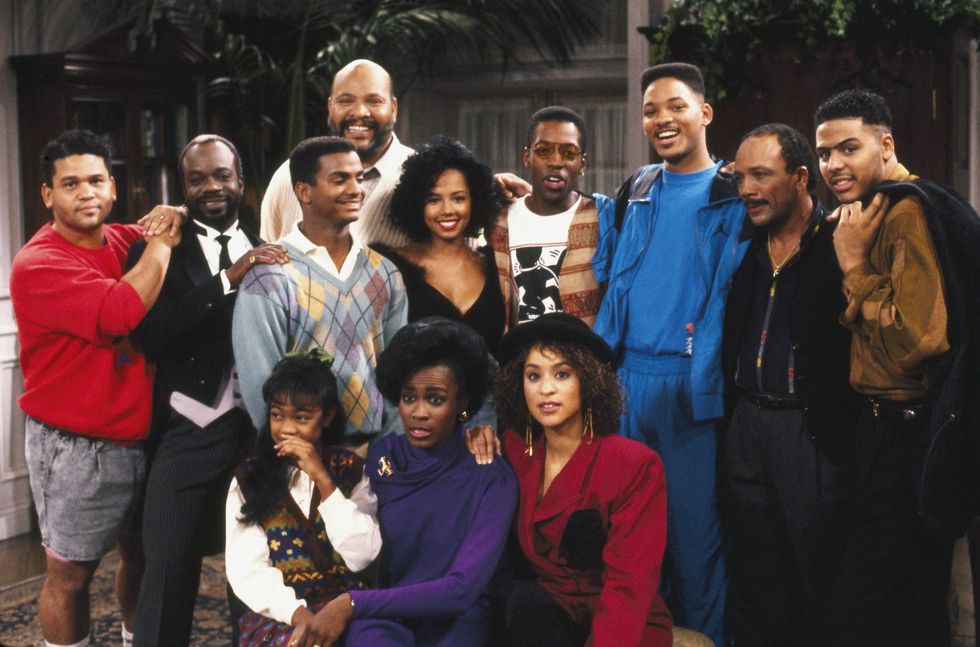From Music to Film, Quincy Jones Produced a Lifetime of Unforgettable Works That Transcended Genres and Defined Generations
The world is mourning the loss of Quincy Jones, the legendary producer, composer, and bandleader, who passed away at 91 on Sunday night at his home in Bel Air, California.
His family shared a heartfelt statement, expressing both their grief and pride, “He is truly one of a kind, and we will miss him dearly; we take comfort and immense pride in knowing that the love and joy, that were the essence of his being, was shared with the world through all that he created. Through his music and his boundless love, Quincy Jones’ heart will beat for eternity.”
Jones, known affectionately as “Q,” was a trailblazer whose influence stretched across genres and industries, leaving an indelible mark on the global entertainment landscape. His legacy, resonates as a testament to creativity, resilience, and cultural impact.
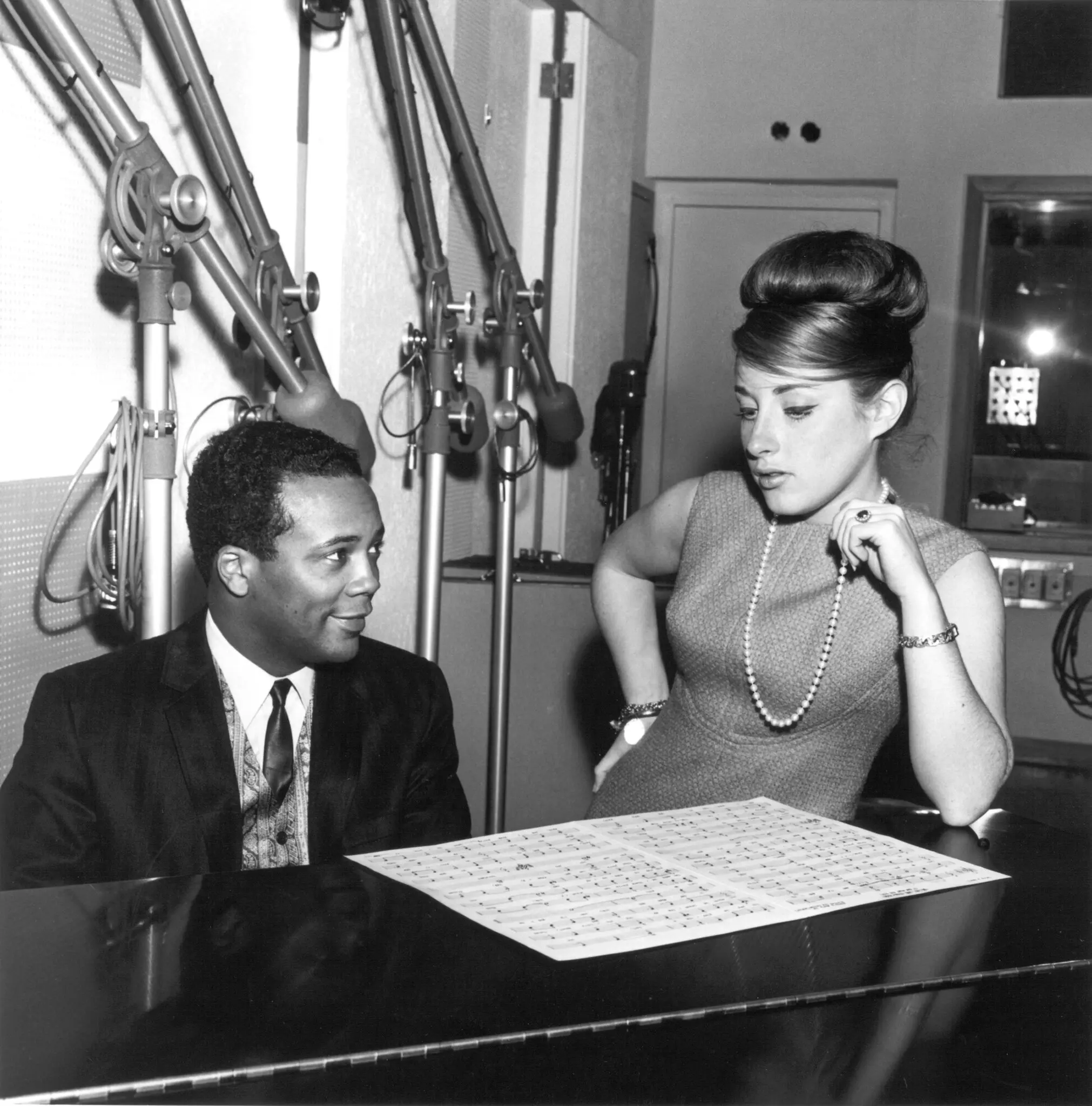
A Pioneer of Jazz and Pop Crossover
Jones’ career began in the jazz clubs, where he first established himself as a force to be reckoned with. From an early age, Jones was rubbing shoulders with legends, meeting Ray Charles at just 14 and joining Lionel Hampton’s big band by 18. This jazz foundation gave him the skill to innovate across genres, propelling him from jazz into pop, R&B, film, and television.
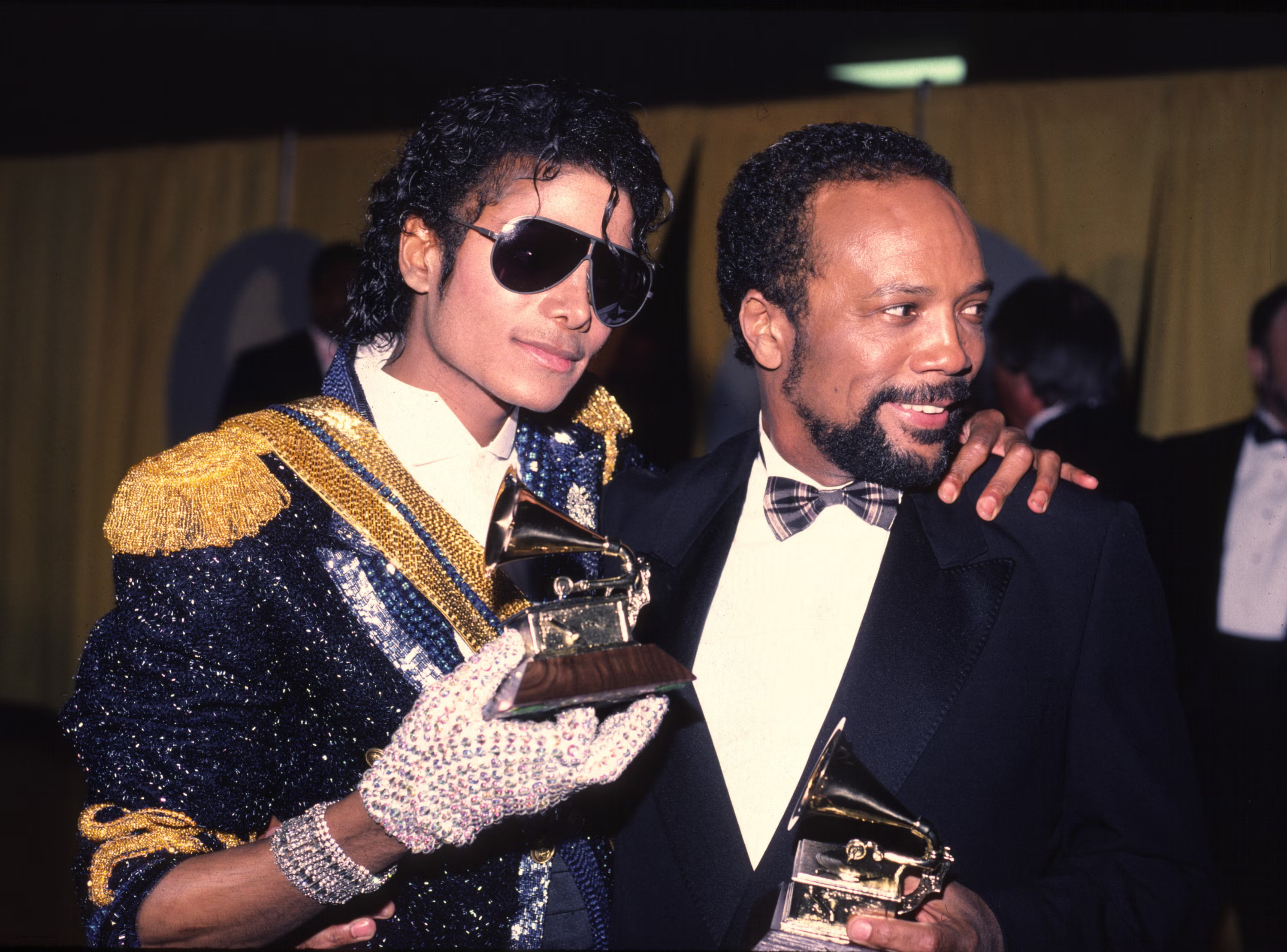
Yet, Jones’ most famous work emerged in pop. His collaboration with Michael Jackson on albums like Off the Wall (1979) and Thriller (1982) redefined pop music. Thriller, which sold over 110 million copies, remains the bestselling album of all time. Jones’ production style, combining intricate arrangements with an ear for mainstream appeal, made these albums timeless masterpieces. His sound shaped Jackson’s rise, but also redefined what pop music could achieve, setting a new bar for the industry.
A 90s Super Producer: From Music Production and ‘We Are the World’ to TV Success with ‘The Fresh Prince of Bel-Air
Quincy Jones organized one of the most iconic charity singles in history, We Are the World, uniting a supergroup of stars like Stevie Wonder, Michael Jackson, Bob Dylan, Diana Ross, Bruce Springsteen, Ray Charles, Cyndi Lauper, and many others to support African famine relief. The song became a powerful symbol of solidarity and humanitarian effort, raising $60 million and showcasing the power of music to bring people together for a greater cause.
Jones didn’t stop at music; he took his influence into film, scoring seven Academy Award nominations, and producing iconic television shows like The Fresh Prince of Bel-Air. His work on Fresh Prince not only launched Will Smith’s acting career but also showcased Black family life in a positive, dynamic light, shifting perceptions of Black culture in mainstream media. This influence only grew with the reboot, Bel-Air, proving Jones’ legacy continues to inspire new generations.
Jones’ career was marked by a string of “firsts” that broke down barriers for Black creatives. He was the first Black person to score a major motion picture with The Pawnbroker (1964) and went on to produce the musical The Color Purple, earning him a Tony nomination. His influence expanded into publishing as he founded Vibe, a magazine celebrating hip-hop culture that offered a powerful platform for Black voices.
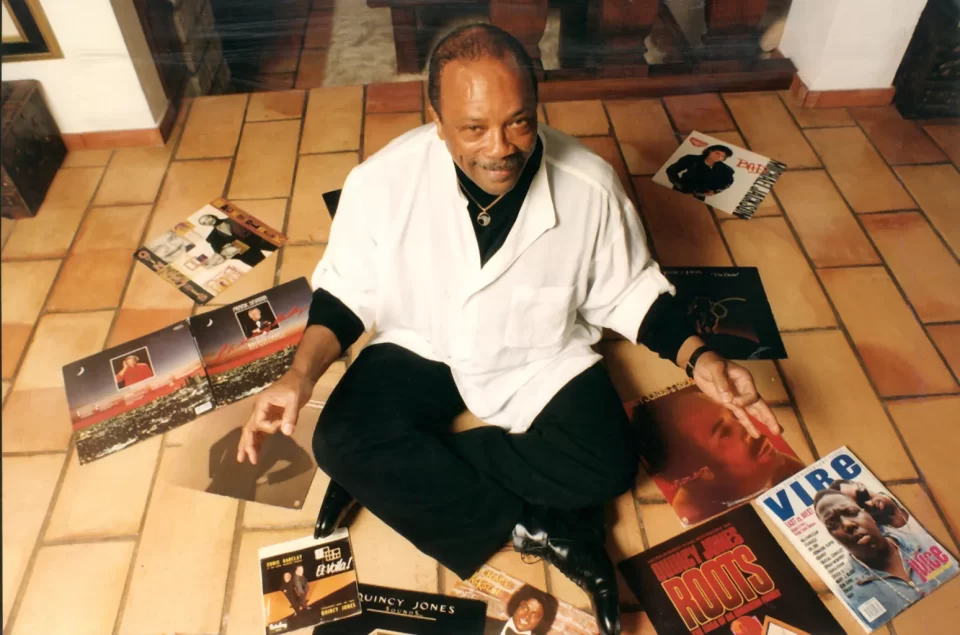
Jones is more than a musical legend; he represents resilience and continued to break barriers that once restricted, not only Black artists but, all artists from reaching the most prestigious positions in entertainment. His impact on the music community is profound, as he opened doors for future musical generations and championed the idea of never confining oneself to a single path—whether in music genres, business ventures, or creative pursuits.
A Legacy Etched in Every Note
The vast scope of Jones’ work is difficult to encapsulate—spanning jazz clubs, Hollywood soundtracks, pop charts, and sitcom screens. He collected 28 Grammy Awards, and his 1990 album Back on the Block epitomized his genre-blending style and cultural influence. He had a unique ability to bridge gaps across musical styles, cultures, and generations, creating a universal language of music.
As the world reflects on Jones’ extraordinary career, it’s clear that his influence will endure. For Black creatives and for the music industry, Quincy Jones was—and always will be—a beacon of excellence, unyielding creativity, and a symbol of the power of music to transcend and transform.





